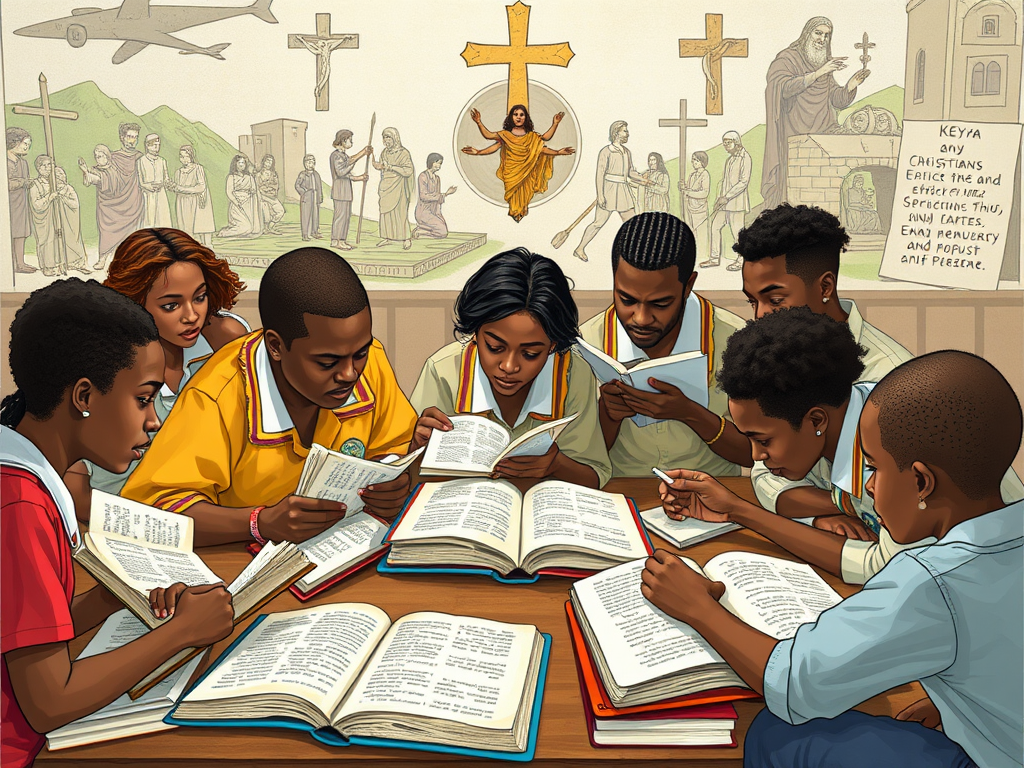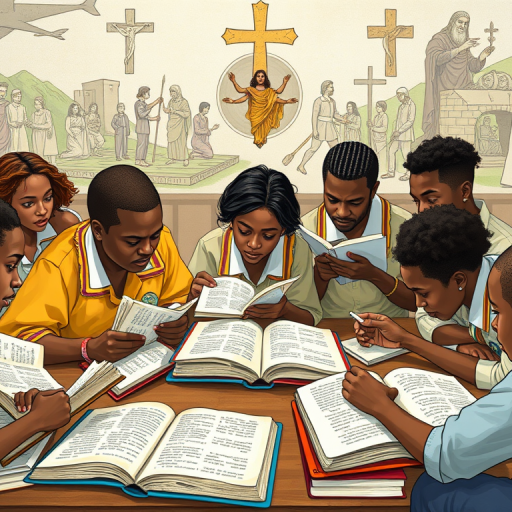Description
Analysis of Questions:
Marking scheme available on Purchase
1. Creation Accounts in the Bible
a. Describe the first Biblical creation account (Genesis I) (8 marks)
- Key Themes: Sovereignty of God, Order of Creation, Goodness of Creation.
- Discussion Points:
- The structure of the narrative (six days of creation, the seventh day of rest).
- The significance of humanity being created in God’s image.
- The implications of God’s declaration that creation is “good.”
b. Mention FIVE relationships between human beings and God in the second Biblical account of creation (5 marks)
- Key Themes: Intimacy, Responsibility, Moral Accountability.
- Discussion Points:
- The creation of Adam and Eve and their roles.
- The relationship of stewardship and obedience (tending the Garden).
- The significance of companionship and community in God’s creation.
c. Give SEVEN lessons to Christians from the fall of Adam into sin in Genesis 3 (7 marks)
- Key Themes: Sin, Consequences, Redemption.
- Discussion Points:
- The nature of temptation and personal responsibility.
- The introduction of sin into the world and its effects.
- The promise of redemption (Protoevangelium).
2. Covenants and God’s Promises
a. Outline SIX importance of the Abrahamic covenant (6 marks)
- Key Themes: Faith, Promise, Identity.
- Discussion Points:
- The covenant as a foundation for Israel’s identity.
- The implications of land, descendants, and blessings.
- The covenant’s relevance to Christians and its New Testament fulfillment.
b. What were the physical effects of the Egyptians when Pharaoh refused to release the Israelites? (7 marks)
- Key Themes: Divine Judgment, Plagues, Liberation.
- Discussion Points:
- The significance of each plague as a judgment against Egyptian gods.
- The socio-economic impact on Egypt.
- The role of suffering in the liberation narrative.
c. State lessons to Christians from the breaking of the Sinai covenant (7 marks)
- Key Themes: Faithfulness, Accountability, Redemption.
- Discussion Points:
- The consequences of unfaithfulness to God.
- The need for repentance and renewal of commitment.
- God’s mercy and the possibility of restoration.
3. Challenges and Lessons in Leadership
a. Identify FIVE problems encountered by the Israelites while settling in Canaan (5 marks)
- Key Themes: Conflict, Identity, Divine Guidance.
- Discussion Points:
- The conflict with Canaanite tribes and internal disunity.
- The challenge of maintaining religious and cultural identity.
- The importance of leadership during this transitional period.
b. Write down failures of King Saul (7 marks)
- Key Themes: Leadership, Obedience, Divine Will.
- Discussion Points:
- Saul’s disobedience and its implications.
- The contrast between Saul and David as leaders.
- The consequences of failing to seek God’s guidance.
c. State activities that describe Elijah as the man of God (8 marks)
- Key Themes: Prophetic Ministry, Divine Power, Social Justice.
- Discussion Points:
- Elijah’s confrontation with Ahab and the prophets of Baal.
- His role as a mediator and intercessor.
- The significance of his miracles and messages in the context of Israel’s faithfulness.
4. Prophets and Their Messages
a. Outline FIVE differences between the Old Testament Prophets and African Seers (5 marks)
- Key Themes: Contextual Prophecy, Cultural Relevance.
- Discussion Points:
- The source and authority of their messages.
- The cultural and spiritual context of their practices.
- The role of prophecy in guiding societal norms.
b. Describe the vision of the Plumbline as revealed to prophet Amos during his call (Amos 7:7-9) (8 marks)
- Key Themes: Justice, Accountability, Divine Standards.
- Discussion Points:
- The symbolism of the plumb line in measuring Israel’s faithfulness.
- The implications of God’s judgment on Israel.
- Amos’ role as a prophet of social justice.
c. State lessons to Christians from Amos’ teaching on Israel Election (7 marks)
- Key Themes: Chosen People, Responsibility, Social Justice.
- Discussion Points:
- The implications of being chosen by God.
- The call to live righteously and advocate for justice.
- The universal application of God’s love and concern.
5. Prophetic Teachings and Symbolism
a. Identify teaching of prophet Jeremiah on idolatry (6 marks)
- Key Themes: Faithfulness, Idolatry, Spiritual Adultery.
- Discussion Points:
- The dangers and consequences of idolatry.
- Jeremiah’s call to return to true worship.
- The relevance of his teachings for modern believers.
b. Explain the significance of Jeremiah’s symbolic act of buying linen waist cloth (Jeremiah 13) (8 marks)
- Key Themes: Symbolism, Divine Message, Spiritual Condition.
- Discussion Points:
- The act as a metaphor for Israel’s unfaithfulness.
- The relationship between God and His people.
- The call for repentance and the hope for restoration.
c. Mention SIX sufferings of Prophet Jeremiah during his ministry (8 marks)
- Key Themes: Persecution, Isolation, Faithfulness.
- Discussion Points:
- The personal cost of prophetic ministry.
- The emotional and physical challenges faced by Jeremiah.
- The significance of his faithfulness despite suffering.
6. Traditional Practices and Their Impact
a. What were the roles of Rainmakers in traditional African communities? (7 marks)
- Key Themes: Spiritual Leadership, Community, Agriculture.
- Discussion Points:
- The cultural significance of rainmakers in agricultural societies.
- Their role as mediators between the spiritual and physical realms.
- The influence of traditional beliefs on community practices.
b. State occasions when services of the herbalists were required in African communities (6 marks)
- Key Themes: Healing, Spiritual Guidance.
- Discussion Points:
- The role of herbalists in traditional medicine and healing practices.
- Their influence in spiritual and social contexts.
- The intersection of faith and traditional practices.
c. Identify traditional African practices undermining the dignity of women (7 marks)
- Key Themes: Gender Equality, Cultural Norms.
- Discussion Points:
- The impact of cultural practices on women’s status.
- The need for advocacy and change in traditional views.
- The role of Christian teachings in promoting dignity and equality.










Reviews
There are no reviews yet.